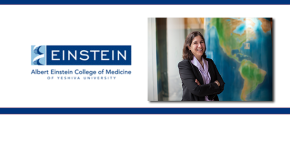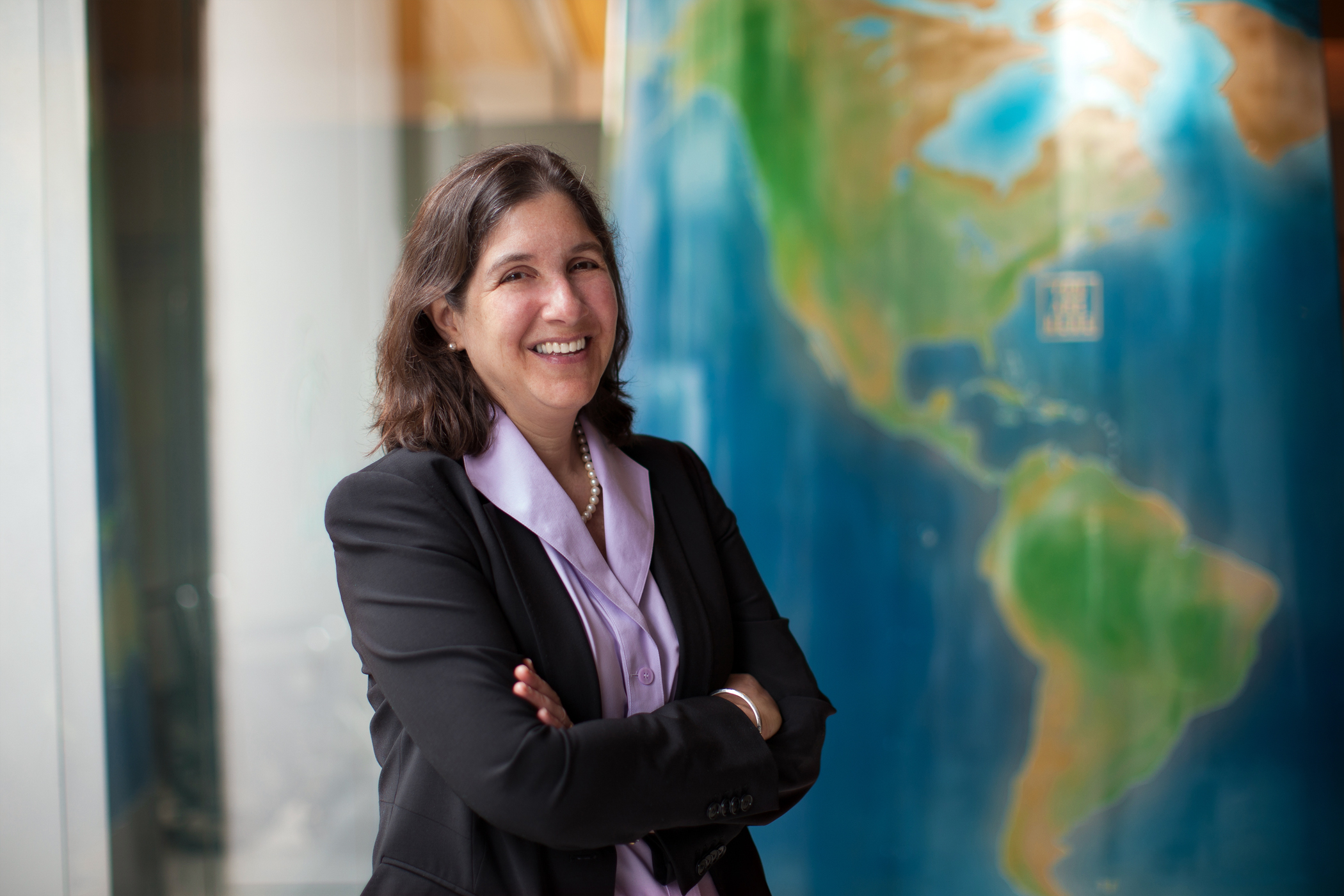The herpes simplex virus is incredibly common and also incurable.
Betsy Herold, a professor of pediatrics and microbiology-immunology at Albert Einstein College of Medicine, is working on a preventative vaccine.
Dr. Betsy Herold is a physician-scientist whose clinical practice and research centers on pediatric infectious diseases. Her focus is on basic and translational research that identifies and develops novel methods of preventing and treating infection in real-world conditions.
Dr. Herold is vice chair for research and the chief of the division of pediatric infectious diseases in the Department of Pediatrics at Albert Einstein College of Medicine and the Children’s Hospital at Montefiore (CHAM). She is the director of the Translational Prevention Research Center and holds the Harold and Muriel Block Chair in Pediatrics at the institutions. She is also professor of microbiology & immunology and of obstetrics & gynecology and women’s health at Einstein.
Among her current research projects, Dr. Herold is developing safe and effective strategies for preventing HIV and herpes simplex viruses (HSV), including vaccines and topical pre-exposure prophylaxis (referred to as PrEP). She is currently conducting NIH-funded studies to develop drug-releasing vaginal rings to prevent HIV and HSV acquisition. She has also developed an experimental vaccine for HSV that proved effective in preventing primary HSV-1 and HSV-2 infections of the skin and genital tract and also prevented the establishment of latency.
A key aspect to Dr. Herold research is to address the troubling but frequent occurrence of promising laboratory findings resulting in disappointing outcomes in clinical trials. For example, microbicides that kill viruses in laboratory tests failed to protect against infection under real world conditions. Dr. Herold discovered that the impact of semen on product efficacy needs to be considered, and her lab has developed preclinical and animal models to predict whether PrEP agents designed to protect against HIV retain potency in the presence of seminal proteins and are safe for human use. In addition, her team discovered why several supposedly “safe” topical PrEP agents had the potential to make women more susceptible to HIV infection. Collaborating with noted infectious disease researcher and HHMI investigator Bill Jacobs, Dr. Herold took a novel approach to circumventing the cause of failed clinical trials for a HSV-2 vaccine and developed an experimental one that upended the traditional approach.
In addition to her lab research, Dr. Herold conducts clinical research related to the prevention of infectious disease complications in children who receive organ or bone marrow transplantation. CHAM recently participated in a multicenter study on the epidemiology of respiratory infections in transplantation recipients, which will pave the way for studies of new antivirals and vaccines.
Dr. Herold is Secretary Treasurer of the Pediatric Infectious Disease Society, a member of the Biomedical Science Working Group of the Microbicide Trials Network, and chairs the NIH AIDS Clinical Studies and Epidemilogy Study Section. She also served on the Office of AIDS Research Advisory Council, which advises the NIH and HHS on AIDS research.
Herpes Vaccine

There are two common types of herpes simplex (HSV) viruses. Type 1 is the cause of the common cold sore and infects about half of the US population and type 2 is the most common cause of genital ulcers worldwide. These viruses are a major global health burden because once infected, the virus persists in a latent (asleep) form for life, but periodically wakes up causing recurrent disease. Moreover, HSV is a leading cause of encephalitis (brain infection) and when newborns become infected, the virus can spread throughout the infant’s body resulting in substantial morbidity and mortality. Thus there is an imperative to develop a vaccine to prevent HSV infections.
Scientists have tried for several decades to develop a safe and effective vaccine against HSV. The major focus has been subunit vaccines comprised of the major envelope glycoprotein called gD. Unfortunately, while the gD subunit vaccines induced high titers of antibodies that were able to neutralize the virus in the lab, the vaccines failed to protect in large clinical studies. Thus, our team took a completely different approach.
We deleted the protein from the vaccine to test the hypothesis that deletion of this immunodominant protein would result in a different type of immune response. We grew the vaccine virus on specific cells to allow it to initiate a first round of infection because glycoprotein is required for viral entry. However, any new virus particles produced are gD negative (because the virus is missing gD gene) and cannot spread further. The vaccine was completely safe in immuodeficient mice and did not cause any disease or spread to the nervous tissue, the site of latency.
When different strains of mice were vaccinated and then challenged either on the skin or intravaginally to simulate human disease with high doses of HSV-2 or HSV-1, the mice were completely protected and no virus could be detected in nervous tissue. No prior vaccine candidate has completely prevented the establishment of latency. The vaccine elicited a different type of antibody response than the gD subunit vaccine (called antibody dependent cell mediated cytotoxicity) that recognized many different HSV proteins. Passive transfer of antibodies to naïve mice fully protected them from disease as well.
Studies are now underway to understand why deletion of glycoprotein allows for this different and more protective type of antibody response and to complete preclinical work needed to test this vaccine in people.
Read More: Einstein News: Experimental Herpes Vaccine Upends Traditional Approach and Shows Promise


Comments
One response to “Betsy Herold, Albert Einstein College of Medicine – Herpes Vaccine”
I am 70 years old. I contracted HSV2/zoster virus 30 years ago and lived a painful and hellish life, some of the time. The disease did go into remission for 12 years.
I developed colon cancer, that was removed successfully 5 years ago. However, since then, I have constant episodes of this virus and without 2 grams of valacyclovir (which does work) I am bedridden and in horrible pain. I am told this dosage is too much and unacceptable by my Kaiser doctors and I am now seeking a doctor with more understanding of this disease.
Can you help ,or direct me to help with my situation. Thank you